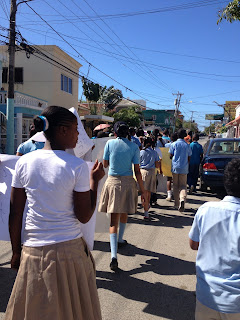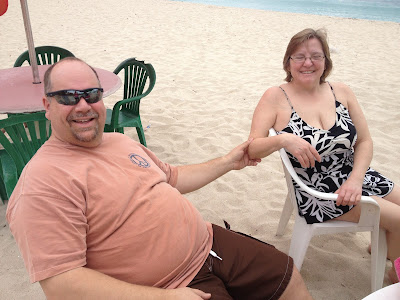
April is Child Abuse Prevention and Awareness month. To fulfill both Prevention and Awareness, Caminante is hosting and participating in events to educate children and parents about the dangers of abuse and signs of abused children. As a child who was lovingly raised by her parents, never hit, never called stupid, never went to bed hungry, was always tucked in at night, and was told "I love you" everyday. This is not the story for a majority of kids in this area. Many children are not told "I love you" and do not know what a supportive family looks like. Unfortunately many of the kids Caminante works with are prone to violence, acting out, fall behind in school, and have few dreams for the future due to the abuse they experience and/or see in their homes and communities.
1. Physical Abuse
Physical Abuse is especially difficult to discuss in this community because physical punishments are typical. Spanking with all types of items are used daily on many kids with little or no thought by any and all adult. The "pow pow" is normal but in every class and workshop kids immediately use it as an example of abuse. One of my students in my music class described very vividly how she hates when her dad uses a belt because she doesn't feel comfortable wearing shorts afterwards because of the
bruise.
2. Emotional or Psychological Abuse
One of Caminante's goals is to empower young people and make them feel loved, important, and smart. Ultimately, Caminante wants to show them that they can be and do whatever they want. Cultural family life does not include homework help or reading together, (for many kids) positive role models, and general lack of love and affection. In addition, emotional and psychological abuse is more than common in the school systems. In classrooms too full, with students uninterested and unmotivated, extreme age variations in the classroom, and lack of resources all lead to a feeling that teachers need to resort to screaming and emotional abuse (and sometimes physical abuse) towards students to gain control.

3. Sexual Abuse
Similar to the United States, children are more likely to be sexually abused by someone they know, but in Boca Chica, predatory tourists also are a significant danger. Unfortunately, predatory tourists know that many of the children who work on the street or the beach will do almost anything for money or a meal. Hyper masculinity also puts young girls at risk for sexual abuse by young boys and teenage not to mention other males.
4. Neglect
Like the other forms of abuse, in an American's eyes, neglect is incredibly widespread. There are several forms of neglect including physical, emotional, and medical. Physical neglect includes withholding life necessities such as clothes, food, shelter/bed, or basic hygienic needs. Emotional neglect includes several elements of lack of love, positive language, and empowerment. I am currently working with a young girl in one of my Sala de Tareas who I believe is suffering from neglect in her home. She repeatedly comes to class with dirty clothes, unbathed, and hair unbrushed. This neglect in her home is leading to emotional abuse in the classroom from the other students.
Throughout the month, Caminante is working to spread awareness about another form of common abuse. Caminante's staff is visiting bars, restaurants, discos, and colmodos (small markets) to reinforce the laws prohibiting sale of alcohol to minors. Many parents think that it is acceptable to send children to purchase alcohol or play the lottery for them. While Caminante is working to educate parents, we want to ensure that any child trying to buy alcohol (for themselves or someone else) will be refused.






















